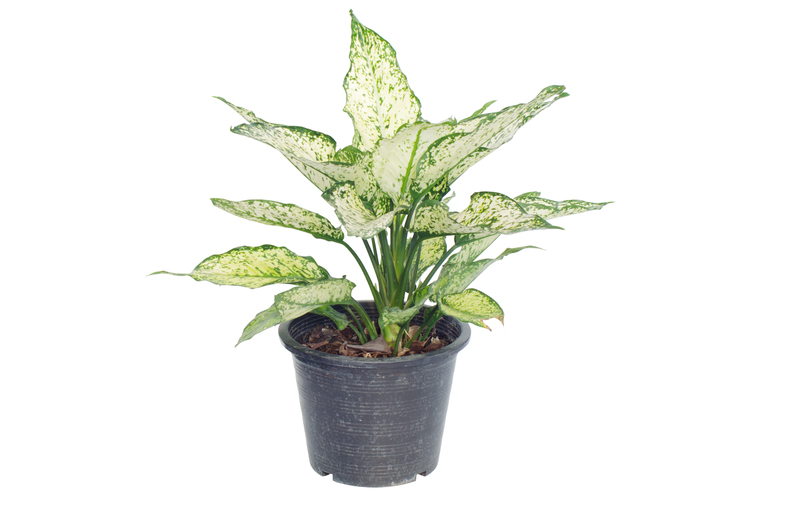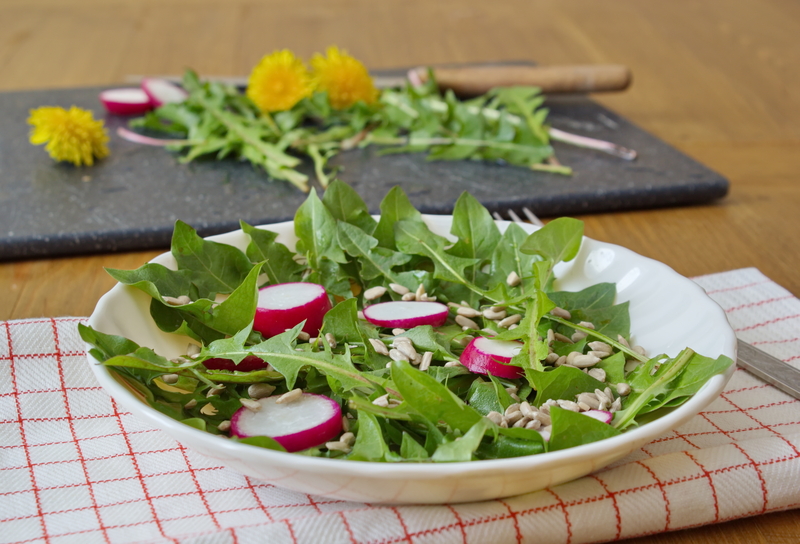Embark on Your Gardening Adventure: 9 Tips for First-Timers
Posted on 25/05/2025
Embark on Your Gardening Adventure: 9 Tips for First-Timers
Are you daydreaming about lush greenery, vibrant blooms, and the delicious taste of vegetables you grew yourself? Taking the first steps into the world of gardening can be both exciting and a little daunting. But with the right guidance, anyone can nurture a thriving garden. In this comprehensive guide, we unveil the most essential tips to help first-time gardeners embark on their gardening journey with confidence and joy!
Why Begin Your Gardening Adventure?
Gardening offers much more than a lovely view. It's a rewarding pursuit that enriches your home, supports biodiversity, and offers rewarding physical and mental health benefits. Whether you're planning a vegetable patch, an herb corner, or a floral haven, starting a garden for the first time is a fulfilling investment in your well-being and your environment.
Benefits of Gardening for Beginners
- Stress Reduction: Nurturing plants is meditative and has proven effects on lowering anxiety.
- Fresh, Flavorful Produce: There's nothing like harvesting homegrown vegetables and herbs.
- Physical Activity: Gardening gets you moving and interacting with nature.
- Learning and Growth: Every season brings new lessons, building your skills over time.
If you're ready to embark on your gardening adventure, explore these nine essential tips crafted especially for first-time gardeners.

1. Choose the Right Garden Location
Location is crucial for successful gardening. Assess your outdoor space--or indoor options for container gardening--to determine the most suitable site.
- Sunlight: Most vegetables and flowers need at least 6-8 hours of sunlight daily. Observe your yard throughout the day for sun exposure before you plant.
- Accessibility: Position the garden where you'll regularly see and tend it, such as near your kitchen, patio, or main pathway.
- Water Source: Make sure your selected spot is close to a water source for easy irrigation, especially during dry spells.
Tip: Don't have a yard? You can start a thriving container or balcony garden with the same foundational principles.
2. Understand Your Soil
Your soil is the foundation of plant health. Take time to evaluate and improve it for better results:
- Soil Testing: Use a home soil test kit or send a sample to a local extension office to understand soil pH and nutrient content.
- Soil Quality: Loamy, well-draining soil is optimal for most plants. Sandy soil drains quickly, while clay soil retains too much water.
- Improve Your Soil: Add organic matter--like compost or well-rotted manure--to boost fertility and structure.
Remember: Healthy plants start with healthy soil!
3. Start Small and Simple
Avoid the common beginner's mistake of taking on too much at once. Begin your gardening adventure with a manageable space--a few raised beds, pots, or a small plot. This approach lets you:
- Learn basic gardening skills without feeling overwhelmed
- Keep up with regular maintenance and harvesting
- Enjoy early successes that encourage future growth
Tip: Grow your confidence alongside your plants!
4. Select the Right Plants
Choosing suitable plants is essential for a successful start. For first-time gardeners, consider these criteria:
- Climate and Hardiness Zone: Choose plants suited for your local climate. Use a USDA Hardiness Zone map or local resources for guidance.
- Sun/Shade Requirements: Match your garden's sun exposure to the plants' needs (full sun, partial shade, or full shade).
- Easy-to-Grow Varieties: Some beginner-friendly veggies and flowers include lettuce, radishes, sunflowers, zinnias, and marigolds.
Start with seeds or young starter plants from a local nursery, and gradually experiment with more challenging varieties as your confidence grows.
5. Learn to Water Wisely
Efficient watering is the cornerstone of healthy gardening. New gardeners often over- or under-water, but you'll find success by following these guidelines:
- Check soil moisture by sticking your finger an inch into the soil-if it feels dry, it's time to water.
- Water deeply and less frequently to encourage deep root growth.
- Water early in the morning or late in the afternoon to minimize evaporation.
- Avoid wetting leaves excessively, as it can promote fungal diseases.
Smart watering translates to less waste and healthier plants!
6. Feed and Mulch Your Garden
Plants need more than just water and sunlight. Supplementing with the right nutrients and mulching appropriately will help your garden flourish:
- Fertilize thoughtfully--use slow-release organic fertilizers and follow package instructions.
- Mulch--a 2-3 inch layer of straw, shredded leaves, or wood chips keeps soil moist, suppresses weeds, and regulates temperature.
- Compost--recycle your kitchen scraps and yard waste to make nutrient-rich compost for your garden beds.
Mulching not only saves time on weeding and watering, but also enriches the soil over time.
7. Observe and Learn Continuously
Gardening is a dynamic, ever-evolving hobby. Take time each day to observe your plants closely:
- Monitor for signs of pests, diseases, or nutrient deficiencies.
- Notice changes in leaves, blooms, or fruit set.
- Jot down what works and what doesn't in a gardening journal.
Every new observation is a learning opportunity--embrace curiosity!
8. Manage Pests and Problems Organically
Even the most careful gardeners encounter garden pests and challenges. First-time gardeners should learn to deal with issues in eco-friendly ways:
- Encourage beneficial insects by planting flowers that attract ladybugs, bees, and lacewings.
- Hand-pick pests (like caterpillars) or use barriers such as row covers.
- Use natural solutions--neem oil, insecticidal soap, or diatomaceous earth--for common issues instead of harsh chemicals.
Building a balanced ecosystem means fewer ongoing pest problems.
9. Celebrate Your Success and Learn From Setbacks
No garden is perfect, especially at the beginning of your journey. Celebrate your first harvests, no matter how small, and don't be discouraged by setbacks.
- Take photos to document your progress--and your triumphs.
- Share your gardening adventure with friends or local clubs to exchange knowledge and enthusiasm.
- Remember: Every mistake is part of growing as a gardener!
Enjoy the satisfaction of nurturing life and reaping the fruits (and flowers!) of your labor.
Extra Tips for Your Gardening Adventure
- Use the right tools: Invest in a quality trowel, pruners, gloves, and watering can for comfort and efficiency.
- Rotate crops: In vegetable gardens, practice crop rotation each season to prevent soil depletion and diseases.
- Label your plants: Mark what and where you've planted seeds or transplants to track progress.
- Keep learning: Read gardening books, attend workshops, and connect with local experts to expand your knowledge.

Frequently Asked Questions for Beginner Gardeners
How much time should I expect to spend gardening each week?
For a small beginner's garden, plan for about 30 minutes to an hour a few times a week. That includes watering, weeding, and checking your plants. As your garden grows, you may invest a bit more time, but it should always remain enjoyable and manageable.
Can I start my gardening journey if I live in an apartment?
Absolutely! Container gardening on balconies, windowsills, or even indoors with grow lights is a fantastic way to start gardening as a beginner. Choose compact or dwarf varieties suited for containers, such as cherry tomatoes, herbs, or houseplants.
What are the easiest vegetables and flowers for first-time gardeners?
- Vegetables: Lettuce, radishes, bush beans, tomatoes, and cucumbers
- Flowers: Marigolds, zinnias, cosmos, sunflowers, pansies
Start with these crowd-pleasers for an easy and fruitful beginning!
What mistakes should first-time gardeners avoid?
- Planting too many varieties at once
- Ignoring soil quality
- Overwatering or underwatering
- Planting sun-loving plants in the shade (or vice versa)
- Not checking for pests regularly
Awareness and preparation can prevent most beginner pitfalls!
Conclusion: Your Gardening Journey Awaits!
Starting your first garden is an adventure filled with learning, discovery, and joy. From choosing your location and plants to nurturing them and reaping the rewards, following these nine tips will set you up for gardening success. Remember: Every great gardener was once a beginner--your own green thumb is just waiting to grow!
Ready to embark on your gardening adventure? Grab your trowel, pick your seeds, and let your journey begin! Share your experiences and let your garden bloom with newfound knowledge, patience, and wonder.
Happy gardening!
Latest Posts
Innovative Approaches to Minimize Garden Storm Damage
Safeguarding Your Plants from Extreme Wind Conditions
Gardener's Toolbox: Essential Tools for the Avid Enthusiast
Elevate Your Backyard's Peace with Stunning Zen Garden Designs

